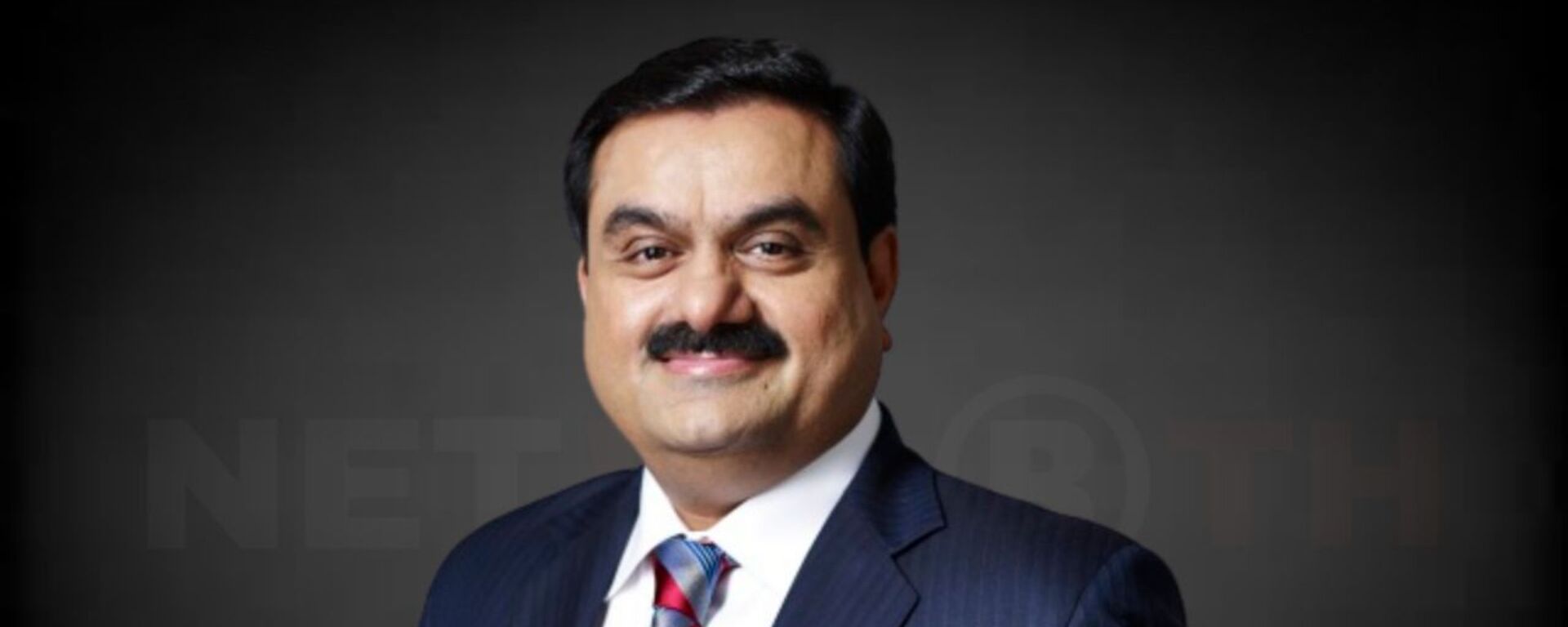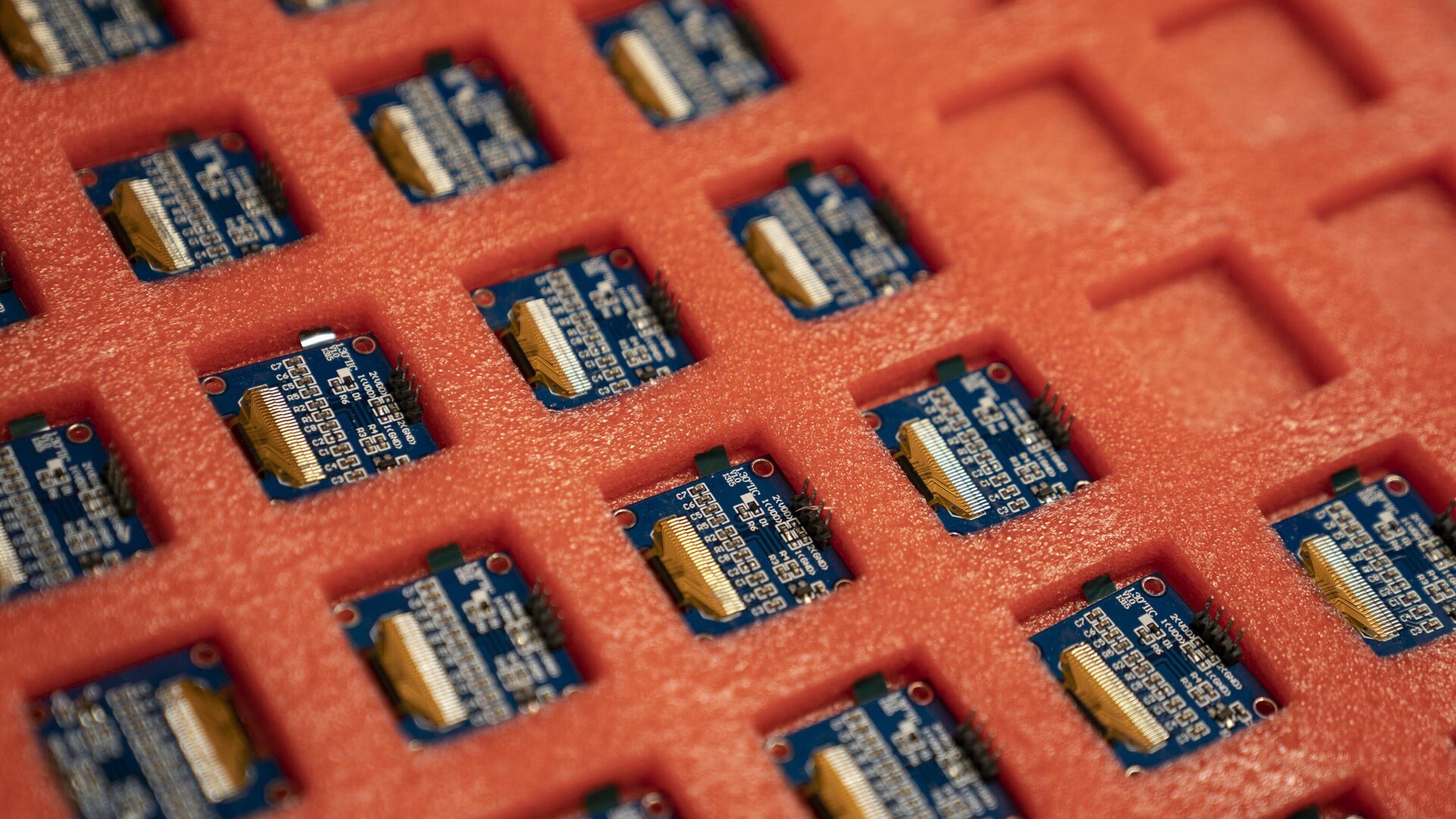https://sputnikglobe.com/20221129/indian-foreign-minister-expresses-concern-over-concentration-of-chip-manufacturing-1104819580.html
Indian Foreign Minister Expresses Concern Over 'Concentration' of Chip Manufacturing
Indian Foreign Minister Expresses Concern Over 'Concentration' of Chip Manufacturing
Sputnik International
India, which still has yet to set up its first semi-conductor manufacturing unit, largely relies on imports of South Korean and Chinese products to meet its... 29.11.2022, Sputnik International
2022-11-29T12:36+0000
2022-11-29T12:36+0000
2023-06-19T12:45+0000
india
semi-conductors
ai
subrahmanyam jaishankar
technology
taiwan
https://cdn1.img.sputnikglobe.com/img/07e6/0b/1d/1104824082_0:160:3073:1888_1920x0_80_0_0_4e1e00f69dd772d39e3ca471eab4dcc9.jpg
Indian Foreign Minister S. Jaishankar on Tuesday echoed concerns about the “concentration” of semi-conductor manufacturing being confined to certain parts of the world, as he made a pitch for “decentralized globalization” and more centers of “global production”.Addressing the opening day of the ‘Global Technology Summit’ co-hosted by the Indian Foreign Ministry, Jaishankar remarked that technology was at the “heart” of modern-day geopolitics.He remarked that New Delhi’s foreign policy priorities should be guided by other countries’ willingness to provide it “access” to modern technology in the realm of semi-conductors, Artificial Intelligence (AI) and 5G technology.“Technology is no more neutral than economics or any other activity… You may speak about data being the new oil… We need to understand that there is a very strong political connotation that is inbuilt into technology,” Jaishankar said, explaining that technology, similarly to trade or energy, was likely to be leveraged by countries as a tool of diplomacy.Jaishankar added said that the debate around the nature of globalization has been spurred in recent years due to “trigger events”, like the victory of former US President Donald Trump in 2016, the Brexit vote in 2018 and, most importantly, the COVID-19 pandemic.Diversifying Semi-Conductor SuppliesThe debate on diversifying the semi-conductor supply chain globally has been reinvigorated after the US Commerce Department imposed restrictions on export of critical chips to China and Russia in September.Washington is at odds with both the countries over the cross-strait triggered by US House Speaker Nancy Pelosi’s visit to Taiwan in August and Moscow’s special military operation in Ukraine.In a bid to boost its own semiconductor manufacturing capability, New Delhi has pledged billions of dollars in incentives to foreign companies interested in setting shop in the country.There have also been calls in India about the transfer of semiconductor manufacturing technology from the US, but the Biden administration is yet to heed these calls.
https://sputnikglobe.com/20220907/indias-richest-businessman-decries-semi-conductor-nationalism-urges-us-to-transfer-tech-to-delhi-1100484076.html
taiwan
Sputnik International
feedback@sputniknews.com
+74956456601
MIA „Rossiya Segodnya“
2022
News
en_EN
Sputnik International
feedback@sputniknews.com
+74956456601
MIA „Rossiya Segodnya“
Sputnik International
feedback@sputniknews.com
+74956456601
MIA „Rossiya Segodnya“
semiconductor manufacturing in india, semiconductor manufacturing companies, global technology summit 2022, us china trade war
semiconductor manufacturing in india, semiconductor manufacturing companies, global technology summit 2022, us china trade war
Indian Foreign Minister Expresses Concern Over 'Concentration' of Chip Manufacturing
12:36 GMT 29.11.2022 (Updated: 12:45 GMT 19.06.2023) India, which still has yet to set up its first semi-conductor manufacturing unit, largely relies on imports of South Korean and Chinese products to meet its domestic needs.
Indian Foreign Minister S. Jaishankar on Tuesday echoed concerns about the “concentration” of semi-conductor manufacturing being confined to certain parts of the world, as he made a pitch for “decentralized globalization” and more centers of “global production”.
Addressing the opening day of the ‘Global Technology Summit’ co-hosted by the Indian Foreign Ministry, Jaishankar remarked that technology was at the “heart” of modern-day geopolitics.
He remarked that New Delhi’s foreign policy priorities should be guided by other countries’ willingness to provide it “access” to modern technology in the realm of semi-conductors, Artificial Intelligence (AI) and 5G technology.
“Technology is a very political issue rather than an economic issue,” the Indian Foreign Minister remarked, adding that countries should stop pretending there is anything “neutral about technology”.

7 September 2022, 11:15 GMT
“Technology is no more neutral than economics or any other activity… You may speak about data being the new oil… We need to understand that there is a very strong political connotation that is inbuilt into technology,” Jaishankar said, explaining that technology, similarly to trade or energy, was likely to be leveraged by countries as a tool of diplomacy.
“There is a sharper realization that big production shares, big market shares, big resource shares are going to be leveraged right in your face. So, the idea that everyone is going to be delicate about it and work on rules good for everybody that’s not the direction the world has gone,” stated Jaishankar.
Jaishankar added said that the debate around the nature of globalization has been spurred in recent years due to “trigger events”, like the victory of former US President Donald Trump in 2016, the Brexit vote in 2018 and, most importantly, the COVID-19 pandemic.
Diversifying Semi-Conductor Supplies
The debate on diversifying the semi-conductor supply chain globally has been reinvigorated after the US Commerce Department imposed restrictions on
export of critical chips to China and Russia in September.
Washington is at odds with both the countries over the cross-strait triggered by US House Speaker Nancy Pelosi’s visit to Taiwan in August and Moscow’s special military operation in Ukraine.
In a bid to boost its own semiconductor manufacturing capability, New Delhi has pledged billions of dollars in incentives to foreign companies interested in setting shop in the country.
There have also been calls in India about the transfer of semiconductor manufacturing technology from the US, but the Biden administration is yet to heed these calls.


